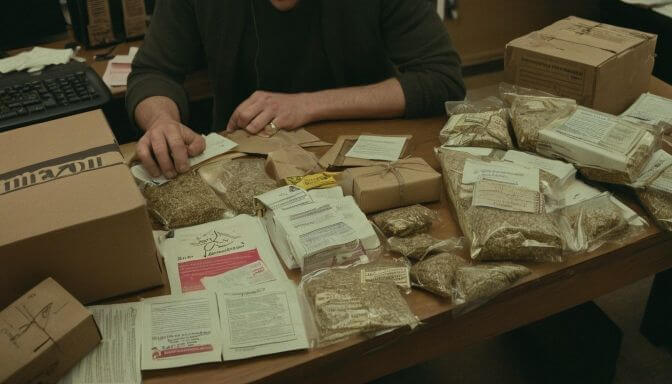A recent investigative study conducted by CBD Oracle has uncovered a concerning level of deceptive labeling and unapproved medical claims associated with hemp products available for purchase on Amazon. The e-commerce giant, despite officially banning these types of products, is estimated to be generating about $64 million per year from its hemp marketplace, with potential projections reaching as high as $125 million annually.
The inconsistencies found in hemp products sold on Amazon
In their comprehensive review of 56 hemp products based on search terms like “CBD gummies,” “hemp,” and similar brand-associated phrases such as “delta gummies,” CBD Oracle discovered astonishing irregularities among the items. A staggering 30% of the sampled products contained undeclared CBD, while 36% had no trace of hemp whatsoever – not even hempseed oil. Furthermore, three of the products tested were found to have large doses of delta-8 THC, and approximately half of them made unapproved medical claims. These findings pose alarming questions about product safety and quality control for those purchasing hemp or CBD products from Amazon.
Lack of regulation could pose risks to consumers
Erik Paulson, PhD, lab manager at InfiniteCAL, warned that people buying hemp or CBD products from Amazon are taking a significant risk due to the glaring inconsistencies in the contents of their purchases. He emphasized that consumers might receive products containing CBD, THC, or hempseed oil – or, even worse, products with no hemp content at all.
CBD Oracle’s report showed that among the 17 products that did contain CBD, there was considerable variation in the amount of CBD per package. It further uncovered that an alarming 62.5% of the products tested had no cannabinoids at all, and 43% contained zero hemp content. The implications of these shocking results suggest a clear lack of regulation and quality control in Amazon’s hemp product market, potentially putting consumers at risk.
Unapproved medical claims further muddy the waters
Aside from glaring inconsistencies between labeling and actual product contents, CBD Oracle’s report also highlighted concerns regarding unapproved medical claims associated with many of the sampled products. These items made dubious statements related to sleep improvement, anxiety alleviation, and common cold relief – none of which are supported by clinical evidence or research. While some products did claim to have been safety-tested and came back with clean lab reports during CBD Oracle’s review process, many others were discovered making unsupported medical claims. This further emphasizes the inadequacy of regulatory mechanisms for the hemp marketplace on Amazon.
Where does this leave consumers?
Given the myriad inconsistencies, mislabeling, and unapproved medical claims found within Amazon’s hemp product market, as revealed by CBD Oracle, it’s clear that purchasing these types of products carries inherent risks.
Quality control seems insufficient at best, and consumers may not receive what they expect based on product descriptions provided by sellers. For those considering buying hemp or CBD products on Amazon, caution is advised.
Understanding these potential hazards can help consumers make informed choices, but ultimately, better regulation is necessary to ensure the quality of the items available online.





